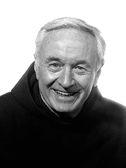Bill W - the Unsung Humanitarian
As you read this, chances are that somebody is quoting Bill W. It might be in a hospital, a jail or perhaps even on board a cruise ship. Indeed, he could easily be considered one of, if not the most widely-quoted (or possibly mis-quoted) Brooklynites of all time. Yet thousands of his followers know little about this man, who was billed by the VILLAGE VOICE as "one of the great unsung humanitarians," whose revolutionary ideas have helped millions.
William Wilson (1895 to 1971) was born on a Vermont farm. His father, an alcoholic, abandoned the family and his mother went away when Bill was young in order to study medicine, leaving him in the care of his grandparents. It was while serving in the Army during World War I that he started drinking heavily, although at first he was able to continue to function in military and then civilian life. Shortly after leaving the service Bill married Lois Burnham, the daughter of a prominent Brooklyn Heights physician, and the two settled in her parents' brownstone at 182 Clinton Street. The young veteran soon became successful on Wall Street, where he showed a knack for investigating companies for potential investors. Success and a loving wife did not stop his drinking, however, which steadily worsened to the point where he lost several jobs and was practically helpless.
What started Bill on the road to sobriety was actually a combination of factors. He had been treated at local hospitals for alcoholism, with little long-term success, but it was during one such hospitalization that he began to get the then novel idea that what he was suffering from was actually a medical problem, and not simply a matter of poor restraint. At the same time, he recognized that recovery from the affliction could not come about without a sincere effort at self-development. A philosophy termed the Oxford Movement was widely popular at the time, and Bill drew heavily upon its emphasis upon character development and service to others. Bolstered by support from the Oxford group, he managd to start getting his life together again, albeit not without several relapses, and soon was taking his message to fellow drunks, whom he would often bring home to stay at the Clinton Street house. As he did this, Bill stumbled upon a truly keen insight: that helping others to deal with drinking kept HIM sober. By addressing alcoholism as a disease he also helped ease the guilt and
denial that often accompany it.
The pivotal meeting which resulted in the rganization of the group which Bill is most famous for occurred in Akron, Ohio durin a 1935 business trip. Alone in a hotel, Bill felt the need for a drink. Rather than succumb, Bill decided to try and find another alcoholic whom he could help. He called a local minister, who put him in touch with Robert Smith, a surgeon whose drinking had rendered him incapable of performing his work. The two hit it off immediately, and soon took their message to a third man.
The net result was sobriety for all.
Lois and Bill had no children. While she continued to work, Bill started devoting most of his time to his new organization, which eventually came to be known, of course, as Alcoholics Anonymous. Aided by "Dr Bob," as Smith came to be known, Bill helped develop many of the documents and ideas which formed the backbone of AA's philosophy. Bill read widely, and one of his prize possessions, which he kept in a top desk drawer for constant reference, was a letter from the noted psychiatrist Carl Jung, who agreed with much of the new group's approach to treating addictions. With enthusiastic support from the medical, religious and legal communities, AA grew exponentially. Despite its size, however, the group never forgot the traditions which made it successful, including equality of members, honesty and the healing power of helping others.
When Bill died in 1971 his funeral was held in the Cathedral of St. John the Divine. Lois helped organize Al-Anon, a parallel organization for families of alcoholics which is based upon the same principles as AA. Nowadays some of the ideas and slogans which Bill hoped promote are sovpopular, given the proliferation of "12-Step" groups, that they have become almost cliches, and are occasionally abused by those do not fully understand them. It is easy to forget just how influential Bill was, and how many lives he has touched.

